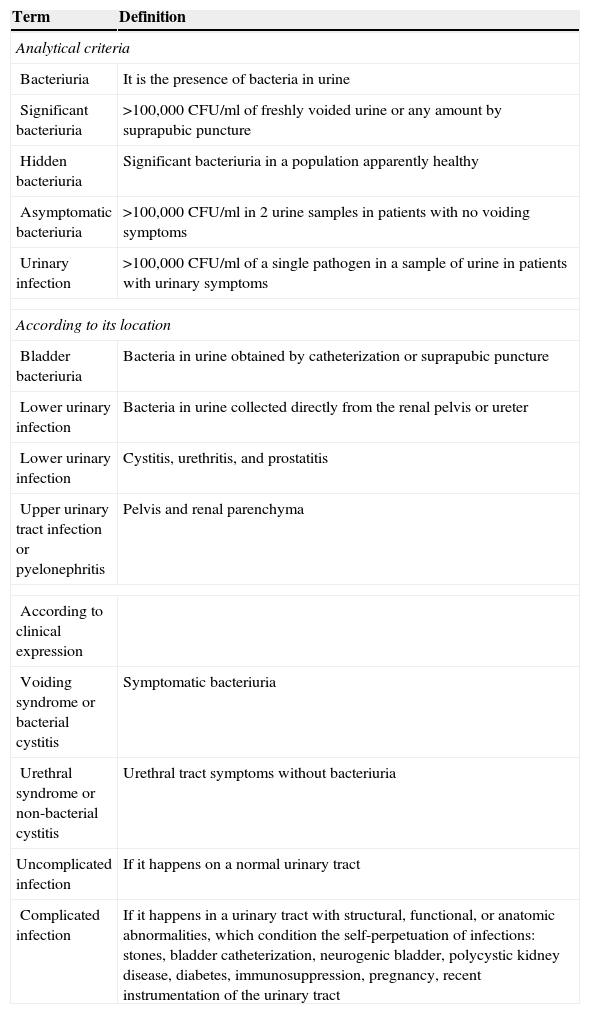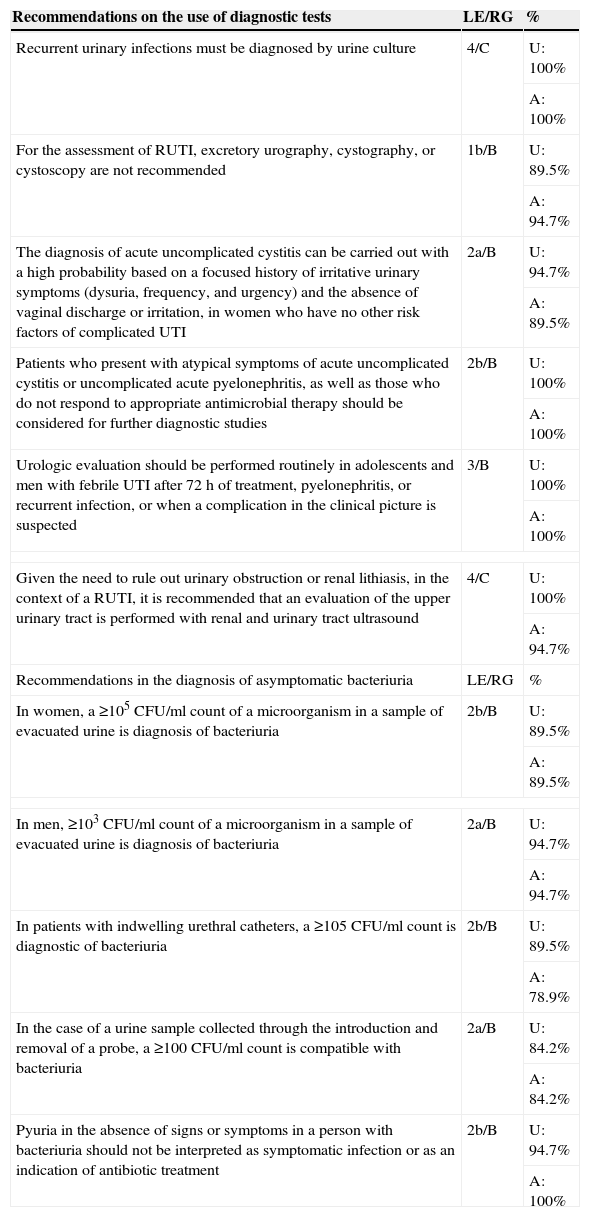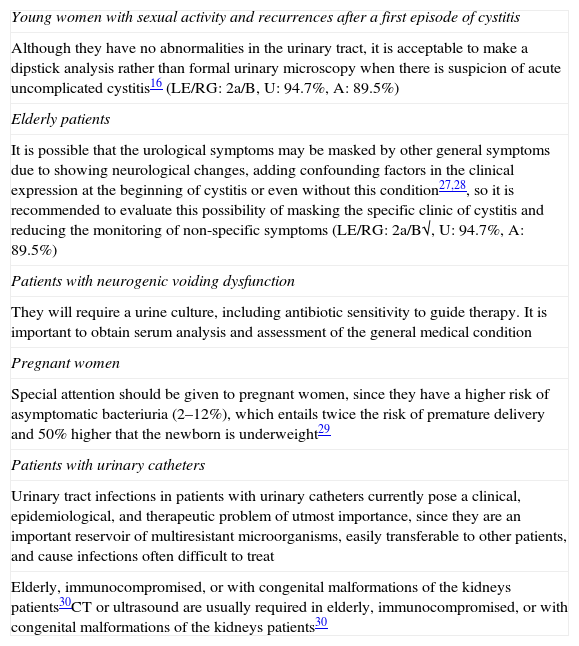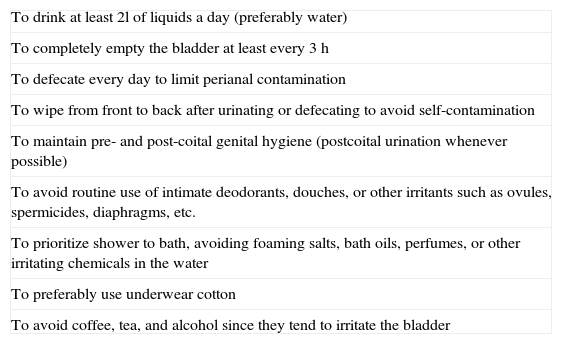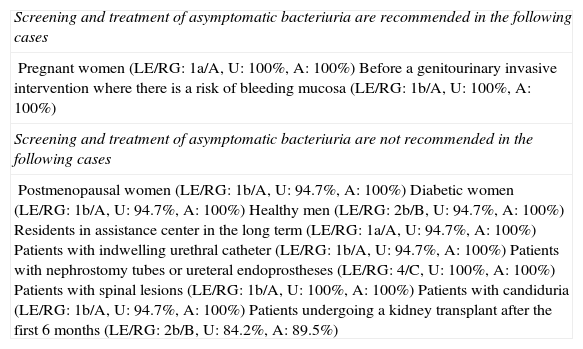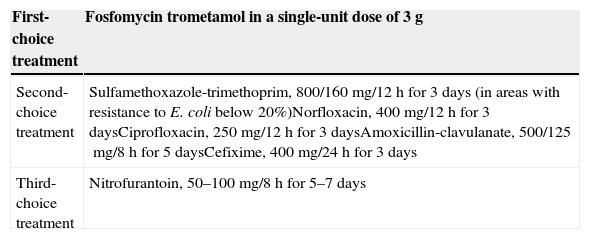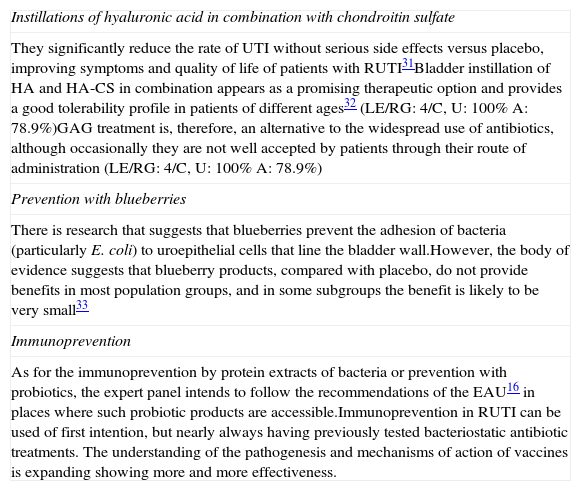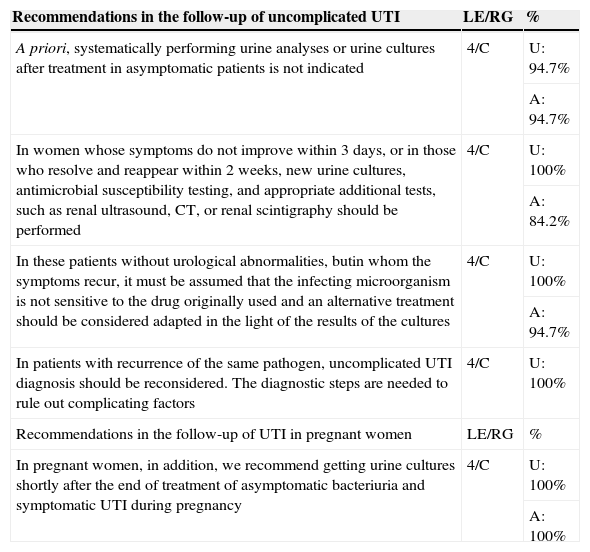The clinical manifestations of urinary infections, commonly mild and uncomplicated, have resulted in a generally empirical therapeutic decision-making process, which does not help fight resistances to antibacterial agents, thus causing a high rate of recurrence.
ObjectiveThis study seeks to reduce the clinical variability in the diagnosis and treatment of uncomplicated recurrent urinary tract infections (RUTIs).
Material and methodThe consensus document was developed using a nominal group methodology, using scientific evidence on RUTIs extracted from a systematic (noncomprehensive) literature review, along with the expert judgment of specialists and their experience in clinical practice.
ResultsRUTIs are considered the manifestation of at least 3 episodes of uncomplicated infection, with a positive culture in the past 12 months, in addition to (for men) the absence of structural or functional abnormalities. We maintain that the treatment should be empiric when suspecting RUTIs (prior to obtaining a urine sample for culture) in those patients who have a high probability of recurrence, associated risk factors and/or urinary or general symptoms, such as fever and chills. Homogeneous criteria are recommended for the diagnosis and treatment in order to fight the increased rates of resistance that the microorganisms develop against antimicrobial agents.
ConclusionImprecision in the identification of the infection requires a search for agreements on homogenized criteria and decision algorithms that guide the management of these patients.
Las manifestaciones clínicas de las infecciones urinarias, habitualmente leves y no complicadas, ha ocasionado que la toma de decisiones terapéuticas sea generalmente empírica, lo que no ayuda a combatir las resistencias a los antibacterianos, relacionándose con una alta tasa de recurrencias.
ObjetivoEste trabajo pretende reducir la variabilidad clínica en el diagnóstico y tratamiento de las infecciones del tracto urinario recurrentes (ITUR) no complicadas.
Material y métodoEl documento de consenso se realizó mediante metodología grupo nominal, utilizando evidencias científicas sobre ITUR extraídas de una revisión sistemática (no exhaustiva) de la literatura, junto al juicio experto de especialistas y a su experiencia en práctica clínica.
ResultadosSe considera ITUR la manifestación de al menos 3 episodios de infección no complicada con cultivo positivo en los últimos 12 meses, añadiéndose, en el caso de los hombres, la ausencia de anormalidades estructurales o funcionales. Se mantiene que el tratamiento bajo sospecha de ITUR debe ser empírico, previo a la obtención de una muestra de orina para el cultivo, en aquellos pacientes que presenten una alta probabilidad de recurrencia, factores de riesgo asociados y/o sintomatología urinaria o general, como fiebre o escalofríos. Se recomiendan criterios homogéneos para el diagnóstico y tratamiento con el propósito de combatir el incremento de las tasas de resistencia que los microorganismos desarrollan contra los agentes antimicrobianos.
ConclusiónLa imprecisión en la identificación de la infección hace necesario sensibilizar la búsqueda de acuerdos para homogeneizar criterios y algoritmos de decisión que guíen en el manejo de estos pacientes.








